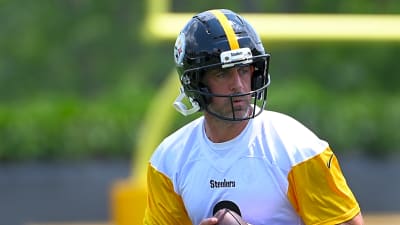
Michael Jordan, widely regarded as the greatest basketball player of all time, rarely had personal moments unrelated to his legendary career on the court, especially those related to social issues or race.
However, the Chicago Bulls legend grew up with a perspective on race relations foiled by hatred.
A tumultuous youth
At just 14 years old, MJ faced the struggles of adolescence against the backdrop of racial tensions in the South. Wilmington, while known for its scenic coastline, had a long history of racial discord. Growing up in this environment was a formative experience for the future superstar.
In 1977, during his teenage years, the six-time NBA champion was suspended from school after an altercation with a classmate who called him a racial slur. The incident, though brief, left a lasting impression on the young athlete.
"I threw a soda at her," Jordan recalled. "It was a very tough year. I was really rebelling. I considered myself a racist at that time. Basically, I was against all white people."
Michael Jordan did not endorse any presidential candidate despite social media claims, reps say https://t.co/d0UemxXhfT
— Fox News (@FoxNews) November 5, 2024
The incident occurred during a decade when sports figures like Muhammad Ali and Arthur Ashe used their platforms to address social and racial issues. However, "His Airness's" future fame as a basketball icon would come in an era where he famously avoided political discussions, focusing instead on perfecting his craft.
Beyond resentment
While the suspension marked a low point in Jordan's adolescence, it also sparked self-reflection. His experience also mirrors the challenges many young Black Americans faced during the late 20th century. In 1977, systemic inequalities and personal encounters with racism were common, forcing many to navigate feelings of anger, confusion, and resistance.
By the time he reached the pinnacle of his career with the Bulls, No. 23 had evolved into a global ambassador for basketball. Yet, he avoided the activist role that contemporaries like Kareem Abdul-Jabbar and Bill Russell embraced.
During the 1990 Senate race in his hometown, the Bulls star declined to endorse Democrat Harvey Gantt, an African American candidate running against Republican incumbent Jesse Helms, who was widely criticized for his racist views. At the time, the North Carolina product, already a celebrated NBA MVP, justified his neutrality with the remark, "Republicans buy sneakers, too."
Even though he later started to take these issues more seriously, the Hall of Famer had an early life built on a lopsided view towards racial issues.
More must-reads:
- Knicks' stance on potential Kevin Durant trade revealed
- Report: Celtics could listen to offers for two key starting players
- The 'Most points in Game 1 of an NBA Finals' quiz
Breaking News
Trending News
Customize Your Newsletter
 +
+
Get the latest news and rumors, customized to your favorite sports and teams. Emailed daily. Always free!







